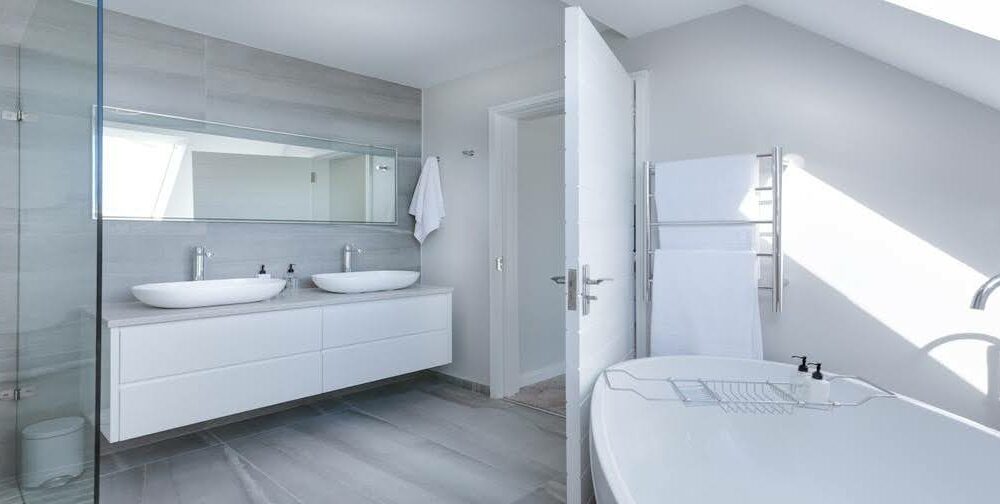Mistakes to Avoid When Doing a Bathroom Renovation

Bathroom renovations can be a rewarding project that not only enhances the functionality of your space but also increases the value of your home. However, it is a complex process that requires careful planning and execution. The smallest oversight or misjudgment can lead to increased costs and prolonged timelines, pushing your project off course.
One common mistake is underestimating the budget needed for a full-scale renovation. Costs can quickly escalate if not monitored closely, with unexpected expenses such as waterproofing, structural reinforcements, or mold remediation potentially arising once work begins. Establishing a flexible but realistic budget ahead of time, accounting for both anticipated expenses and a contingency for unforeseen issues, is essential.
Another area that demands attention is the selection of materials and fixtures. Durability and practicality should be considered alongside aesthetics. For example, choosing a beautiful tile that is slippery when wet could pose safety risks. Likewise, high-maintenance surfaces in a high-traffic bathroom might lead to regret if they require more upkeep than you’re prepared to commit to. Your choices should marry function with style, ensuring a bathroom that looks good and works well for your daily needs.
Setting a Budget
When planning a bathroom renovation, it’s crucial to set a realistic budget that accommodates both expected and unexpected costs. Whilst there are many guides to bathroom renovations online, it’s important to focus on the potential mistakes you can make just as much as you focus on what you should be doing.
Ignoring Hidden Costs
One common mistake you might make is not accounting for hidden costs that often arise during renovations. These may include plumbing issues uncovered during the project, structural changes, or waterproofing requirements. It’s advisable to allocate an additional 10-20% of your overall budget for unforeseen expenses to ensure you’re covered for any surprises.
Overestimating DIY Skills
Another area where you might misjudge involves the overestimation of your DIY skills. While you can save money by doing some work yourself, specialized tasks like electrical and plumbing work usually require professional expertise. If you factor in DIY savings, be honest about your abilities and the time you have available. Otherwise, you risk incurring additional costs due to mistakes or incomplete projects, which may require hiring a professional to rectify.
Design and Planning
When considering a bathroom renovation, it’s critical to focus on design and layout, ensure adequate ventilation, and plan for sufficient storage. These core aspects will greatly influence the functionality and comfort of your updated space.
Neglecting Layout
The layout of your bathroom should facilitate easy movement and functionality. When planning, consider the placement of the sink, toilet, and bath or shower in relation to each other. Avoid layouts that feel cramped or have an unnatural flow, as this can significantly affect your comfort and the practicality of the space.
Forgetting Ventilation
Proper ventilation is essential in a bathroom to prevent mold growth and to remove odors and humidity. Ensure your design includes a ventilation system, such as an exhaust fan, that is adequate for the size of the space. The placement of vents and fans should be strategic, ideally near sources of moisture like the shower or bath.
Overlooking Storage
Storage is often underestimated in bathroom renovations. Your design should include enough storage for toiletries, towels, and cleaning supplies. Consider built-in niches in shower walls, vanity storage, and medicine cabinets. Efficient use of space, such as under the sink or over the toilet storage, can also maximize the area without compromising the design.
Material Selection
When renovating your bathroom, selecting appropriate materials is crucial for both the aesthetic appeal and the longevity of the renovation.
Choosing the Wrong Materials
You must take care to choose materials that are suitable for the bathroom environment. For example, avoid materials that are not resistant to moisture, such as certain types of wood or non-laminated chipboard, as they can warp or rot. Instead, opt for moisture-resistant options like porcelain tiles or treated wood products designed for high humidity areas. Bathrooms experience significant shifts in temperature and humidity, which can cause certain materials to degrade quickly if they are not meant for such conditions.
Ignoring Durability
Durability is another aspect you should not overlook when selecting materials for your bathroom renovation. High traffic areas, such as floors and countertops, require materials that can withstand regular use. Consider using ceramic or porcelain tiles for flooring as they are hard-wearing and easy to clean. For countertops, materials like quartz or granite offer more durability than laminate options and add a luxurious finish to your space. Remember that cutting corners on durability can result in additional costs for repairs or replacements in the long term.
Execution and Quality Control
Proper execution and meticulous quality control are crucial to ensure your bathroom renovation meets both functionality and design standards. The importance of these factors cannot be overstated as they can greatly influence the durability and overall success of your project.
Hiring Inexperienced Contractors
Choosing to hire contractors with insufficient experience can lead to numerous problems, including substandard work quality and project delays. It’s essential to verify your contractor’s credentials, check their past work, and read reviews from previous clients to ensure they have a proven track record of quality craftsmanship.
Skipping the Waterproofing
Waterproofing is a non-negotiable step in bathroom renovations. Neglecting this critical phase can result in moisture damage, costly repairs, and potential health hazards due to mold and mildew. Make certain that all wet areas, especially showers and floors, are thoroughly waterproofed according to industry standards.
Failing to Measure Accurately
Accurate measurements are the foundation of a seamless renovation. Even minor measurement mistakes can cause significant setbacks, such as the misfit of fixtures or incorrect tile quantities, leading to unexpected expenses and project delays. Double-check all measurements and ensure they align with the specifications of the products you have selected.





